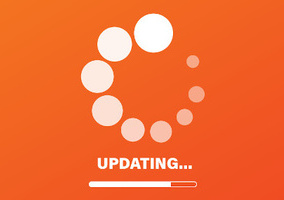It was clear when I started at Dementia UK that it was a sleeping giant.
Another fundraiser said to me not long after I started: “It’s very rare that opportunities like this come up.”
That’s because despite sounding like a big charity (many donors mentioned Cancer Research UK and Dementia UK in the same breath), its voluntary income was relatively low.
The family that founded the charity in 1994 had the insight that carers of people with dementia needed support too. They identified that dementia specialist nurses could fill the gap, and built up the charity to the point income was £2.7m by the time I started in August 2014.
New identity
My role then was as director of fundraising and communications. There are arguments for and against fundraising and marketing and communications being together or separate, but for me in this role, it was a positive.
The charity needed to raise income quickly, and being able to pull all the levers was a significant advantage. A project to improve the website the month before I arrived saw an instant improvement in unsolicited income and that lesson – of the importance of marketing and communications in delivering income – has never been lost on me.
Relatively quickly we embarked on projects to deliver a visual identity re-brand and a new website – both launching in October 2015.
It was not easy getting the budgets for these projects, and developing business cases informed by wider sector learnings on expected income and return was key.
Not long after I restructured the fundraising team into one that most fundraisers would recognise – individual giving and legacies; community and events, philanthropy and partnerships, and supporter care and database services.
The combination of the new identity and website, and the investment in fundraising did deliver the growth we hoped, and each year meant we were able to invest further in the team. By 2019 voluntary income had grown to £10.6m.
Growth during Covid
However, it was the pandemic that delivered the biggest income growth. Not that I saw it at the time. Whilst we got a relatively early emergency appeal out in March 2020, I forecasted way down in April 2020.
The world didn’t stop turning though. The appeal performed well, members of the public and organisations thankfully stepped up to support us; and crucially, we started running virtual events through Facebook.
An innovation programme which was set up, led to the insight that carers of people living with dementia found solace in walking their dogs. A dog walking event for dementia was born – the March dog walking challenge launched in 2021, raising £2.1m.
Virtual event fundraising turbocharged our fundraising, and meant that we have been able to further invest in our activity; and establish a policy, campaigns and public affairs function too (we are now fundraising and engagement).
I’ve seen fundraising income start to spiral downwards when budgets are reduced to cut costs, and investments in testing, learning and rollout are lost. We’ve been able to maintain investment through making strong business cases and having supportive trustees and colleagues.
Income grew 42% from 2019-2020 to 2020-2021; and as we end 2023-2024 it is looking likely our voluntary income will be £21.8m.
We think there are more opportunities still and, like many charities, are investing in legacies for the long term, as well as striving for year-on-year growth.
A sleeping giant indeed!
Related Articles












